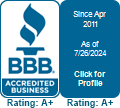| Business Plans - FAQs |
 |
 |
 |
|
Business Plan – Frequently Asked Questions Your Organization will find a business plan useful for:
1. When should you prepare a business plan? The moment you decide to start your business, you need a Business plan. In most cases, a Business plan is prepared when a new organization is set up, a new product is offered, the company expands its activity and/or is trying to improve the quality of the services and products it provides. In the business world, lots of organizations decide to have a business plan, after they have started their activity and need additional resources or direction to go further and succeed. Once, you realize the prospects of the Business plan; you can be ready to promote your business in the best possible way.
2. I have a nonprofit organization. I don’t need a Business plan. Is that correct? If you want your organization to become successful and the provided services to be accessible to many people, it doesn’t matter if your business is for profit or for charitable, religious, educational or other purpose. As a result-oriented manager, you have to understand the market in which you develop your activity, the competitors in the field and to have a clear picture of your financial needs. The business plan is the best document to provide you with a road map to success.
3. What does the business plan summarize?
Your Business plan has to provide a clear, neat, easy to read, legible presentation of your business.
4. The benefits of the Business Plan are:
5. Who are the stakeholders of the Business plan?
6. Why do I have to calculate my start-up expenses? Before you actually start your business, there are expenses that are incurred in the very beginning. These expenses take place before the first month and shouldn’t be underestimated. Their forecast will help your organization to operate normally and it will be easier for you to manage. Once your organization is profitable and is well operating and managed, you can expand your activities.
7. Once I have the business plan, what’s next? The business plan represents your company. It is the official document of your strategy for development. Don’t forget that as your company grows up, the business plan has to be updated. We recommend the following:
But the most important – set this plan in motion. Don’t just keep it for your records; share it with your stakeholders. Don’t be afraid to be flexible.
8. My business has an operating loss at start-up. Is that normal? Losses incurred by a new business are normal. This is a very common situation with start-ups companies. At the very beginning you are not accumulating 100% of your sales potential.
|

 Business Plan - FAQs
Business Plan - FAQs